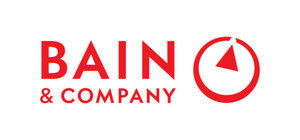
- Health systems are accelerating the shift towards value-based and population-focused models, but workforce shortages remain a key constraint
- AI and digital tools are scaling fast to ease clinician burden and power new care models
- Patient comfort with these applications is rising—but unevenly across use cases
BOSTON, Oct. 22, 2025 /PRNewswire/ -- US health systems are increasingly making primary care a strategic priority, according to key findings of Bain & Company's 2025 Primary Care at Health Systems Survey 1.
Historically seen as a referral engine, primary care is now being positioned as central to patient experience and clinical quality as well as cost management—with 77% of executives planning to expand their primary care footprint by adding more owned practices and employing more primary care providers over the next five to seven years. They anticipate a significant shift toward value-based and population-focused care models, with artificial intelligence playing an important role in helping systems overcome persistent operational hurdles, as Bain examines in additional findings here.
"The ambition around primary care is clear: health systems are betting on it as a cornerstone of strategy," said Dr. Erin Morrissette, partner in Bain & Company's Healthcare & Life Sciences practice. "Our research suggests that those who can navigate workforce shortages, reimagine care models, and adopt AI in ways that truly reduce burdens for clinicians will succeed. At the same time, significant questions remain about whether health systems can successfully deliver on these goals. But those that do will be best positioned to improve outcomes, enhance the patient experience, and create sustainable models for the future."
Primary care continues to play a vital role in improving patient outcomes, experience, and equity while helping to manage the total cost of care. What remains less certain is how delivery will evolve—whether traditional fee-for-service models will hold ground, or if value-based, population-focused, and AI-enabled approaches will take the lead.
- Value of primary care is shifting: Improving medical cost management and fulfilling community commitments are rising in importance, while driving referrals to specialists has dropped to the bottom of rationales for employing primary care professionals.
- Fee-for-service still dominant today but momentum is building towards value-based models: Most health systems continue to rely heavily on fee-for-service reimbursement, but executives expect a shift toward population-focused clinics with value-based reimbursement in the next five to seven years.
- Labor challenges persist: Physician recruitment and retention are the top near term priorities and leaders shared that workforce shortages are their greatest concern over the next decade – surpassing even financial sustainability, patient experience and technology.
- AI adoption will reshape primary care operations: Health systems expect adoption of AI solutions to surge in the next three years, with e-prescribing systems rising from 27% to 55%, appointment scheduling from 33% to 63%, and telehealth platforms from 38% to 63%.
- Patients' comfort with AI is rising, but with some skepticism persisting: The share of patients comfortable with AI listening and taking notes jumped from 21% in 2024 to 60% in 2025. Comfort with AI analyzing medical exam results and creating a report increased from 37% to 51%, and 35% are now comfortable speaking to a non-human call center, up from 19% the prior year. Yet comfort remains lower for fully automated uses—34% are comfortable with AI making a diagnosis, and only 28% with AI becoming their doctor.
- But AI is still far from replacing doctors: In-person visits at traditional settings remain the clear preference, with net preference scores of 49% for sick visits and 63% for visits for chronic condition visits. Virtual appointments are mixed at 7% for sick visits and minus 1% for chronic condition visits. AI chatbots rank lowest with net scores of minus 46% (sick) and minus 53% (chronic condition). Pharmacy or retail visits also lag at minus 10% (sick) and minus 9% (chronic condition).
Investment in AI and digital health enablers is accelerating, reflecting their growing role in the transformation of primary care. Health systems are beginning to scale tools that enhance efficiency, ease administrative burden, and support more coordinated models of care. This shift underscores how technology is moving from a supporting function to a core enabler of primary care delivery and the transition to value-based models.
Notes to editors
- The Primary Care at Health Systems Survey was conducted in June and includes responses from 60 health system executives, 53% from academic medical centers and 75% from hospitals with more than $1 billion in revenue. Respondents included medical directors, CMOs, department chairs or division chiefs, and primary care service line leaders. These findings are complemented by a separate Bain US consumer survey of 500 respondents conducted in September 2025.
Media contacts
To arrange an interview or for any questions, please contact:
Dan Pinkney (Boston) — Email: [email protected]
Amanda Folsom (Boston) — Email: [email protected]
Gary Duncan (London) — Email: [email protected]
Ann Lee (Singapore) — Email: [email protected]
About Bain & Company
Bain & Company is a global consultancy that helps the world's most ambitious change makers define the future.
Across 65 cities in 40 countries, we work alongside our clients as one team with a shared ambition to achieve extraordinary results, outperform the competition, and redefine industries. We complement our tailored, integrated expertise with a vibrant ecosystem of digital innovators to deliver better, faster, and more enduring outcomes. Our 10-year commitment to invest more than $1 billion in pro bono services brings our talent, expertise, and insight to organizations tackling today's urgent challenges in education, racial equity, social justice, economic development, and the environment. We earned a platinum rating from EcoVadis, the leading platform for environmental, social, and ethical performance ratings for global supply chains, putting us in the top 1% of all companies. Since our founding in 1973, we have measured our success by the success of our clients, and we proudly maintain the highest level of client advocacy in the industry.
SOURCE Bain & Company






Share this article